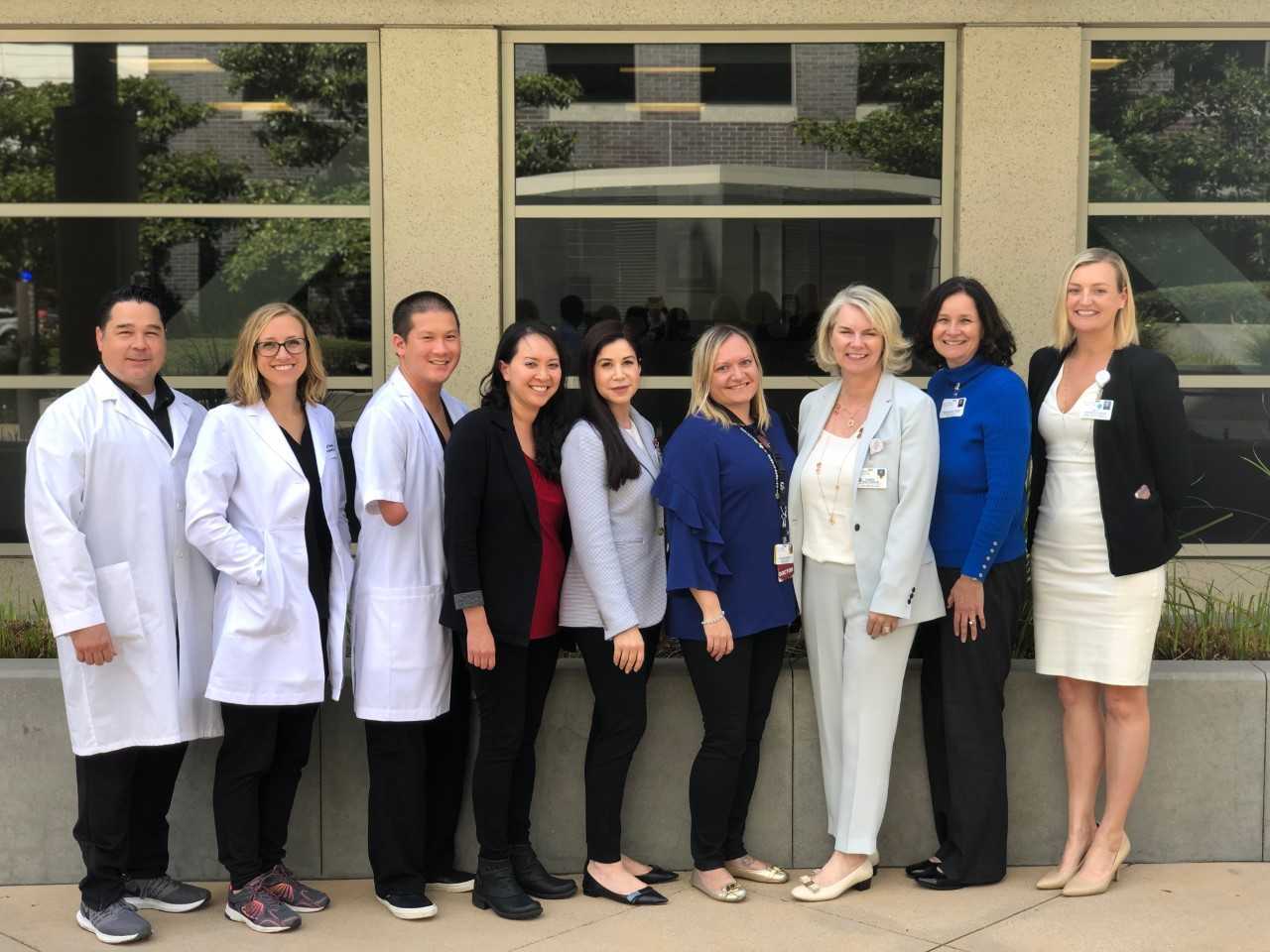
Group leader: Dr. Justyne Decker, Dr. Carolyn Kaloostian and Dr. Carol Peden
Project summary:
The USC Perioperative Brain Health Initiative is a quality improvement project at a major academic medical center to evaluate the impact of a multidisciplinary pathway to reduce perioperative neurocognitive disorder (PNCD) and improve outcomes in older adults undergoing elective, intermediate to high risk surgery. The most common perioperative complication to affect older adults is the development of PNCD – delirium, delayed neurocognitive recovery and minor/major NCD. Postoperative delirium events and delayed neurocognitive recovery – the “brain fog” and difficulty with concentration and memory that may occur in the postoperative setting can be distressing and life altering to both patients and their families. Reported incidence ranges from 13-50%. The greatest risk factor for developing PNCD is preoperative cognitive impairment and it is estimated that up to 40% of PD events are preventable. Routine preoperative cognitive screening is recommended by the American Society of Anesthesiologists (ASA), American Geriatric Society (AGS), and American College of Surgeons (ACS). Recently, patients and the medical community have begun to recognize the importance of perioperative neurocognitive status, as it predicts higher likelihood of postoperative delirium and postoperative complications. The 2018 joint Perioperative Brain Health Initiative summit between the ASA and the American Associations for Retired Persons (AARP) concluded that older surgical patients want to know about this potential complication, their risk and what they, their family and their healthcare team could do to help around the time of surgery.
In response to the national societal recommendations, the PreOp Clinic at Keck Medical Center of USC began to implement routine cognitive screening. In their elective surgical population, 25.4% of patients had preoperative cognitive impairment. The significant incidence was used to prompt routine consideration of cognitive status in clinical management and to drive forward the idea of developing a multidisciplinary BHI team. This team is a collaboration among the departments of Geriatrics/Family Medicine, Pharmacy, Occupational Therapy (OT), Anesthesiology, Surgery, and Nursing. Recognizing the importance of using data analytics to collect and assess perioperative data, the analytics department and health systems innovation center was enlisted to help early on. This team is united with the common goal of providing the best care to our older surgical patients. In this study, best practices are taken from perioperative recommendations from the ASA, AGS and ACS.
This study provides the opportunity to evaluate a multidisciplinary intervention in the form of a unified care pathway for those at neurocognitive risk. It is anticipated that this study will help reduce the incidence of PNCDs, improve patient and family education of this complication, and provide referral for a long term care plan at our Geriatric Assessment Program (GAP) clinic. Over the course of the project, they also aim to reinforce the basic principles of PNCD prevention to expand the knowledge within the organization on this important topic.
Learn more about their work:
- Gordon S. Keck Medical Center Launches New Brain Health Initiative at USC. Perioperative Brain Health Initiative, American Society of Anesthesiologists. https://www.asahq.org/brainhealthinitiative/news/keckmedicalcenter. Published May 17, 2019.
- American Society of Anesthesiology, Annual Meeting 2019 - The Effect of Cognitive Screening in the Ambulatory Setting on Surgical & Anesthetic Management
- American Society of Anesthesiology, Annual Meeting 2019 - How to Establish a Brain Health Initiative at your Institution
- California Society of Health-Systems Pharmacists, Annual Meeting 2019 - Perioperative Brain Initiative: A Multi-Disciplinary Approach to Patient Care
- International Anesthesia Research Society, Annual Meeting 2019 - Ease of Implementing Routine Preoperative Cognitive Screening to Identify Surgical Patients at Risk for Perioperative Neurocognitive Disorder
- American Geriatric Society, Annual Meeting 2019 - Development of Interprofessional Geriatric Evaluation to Reduce Risk for Perioperative Neurocognitive Disorder